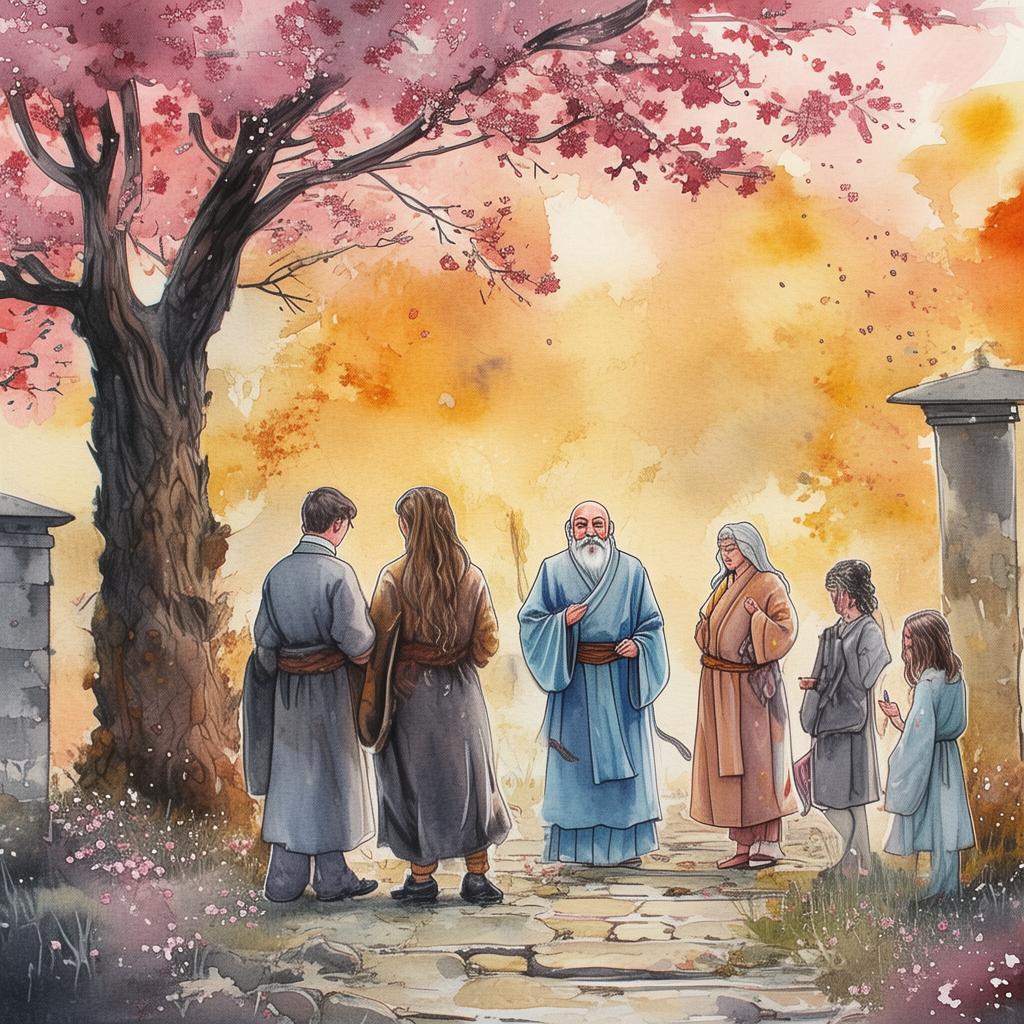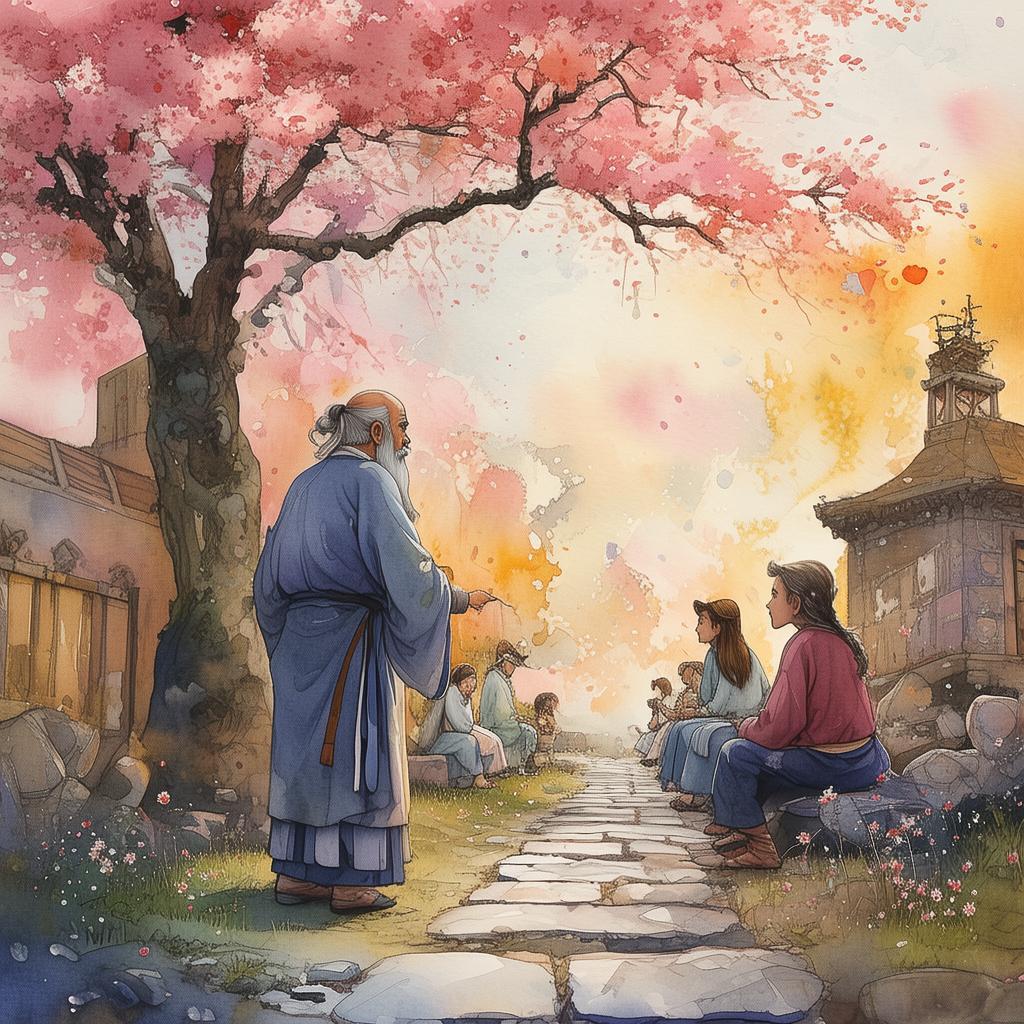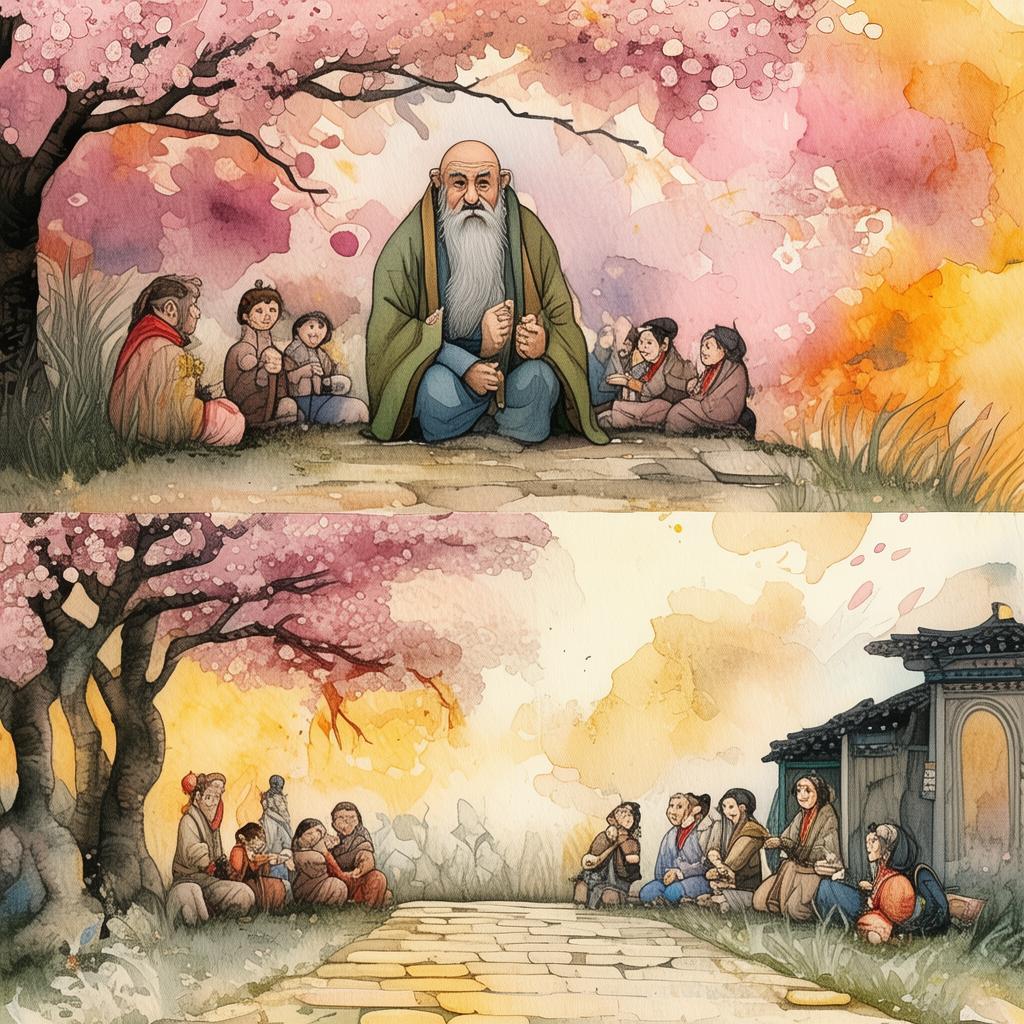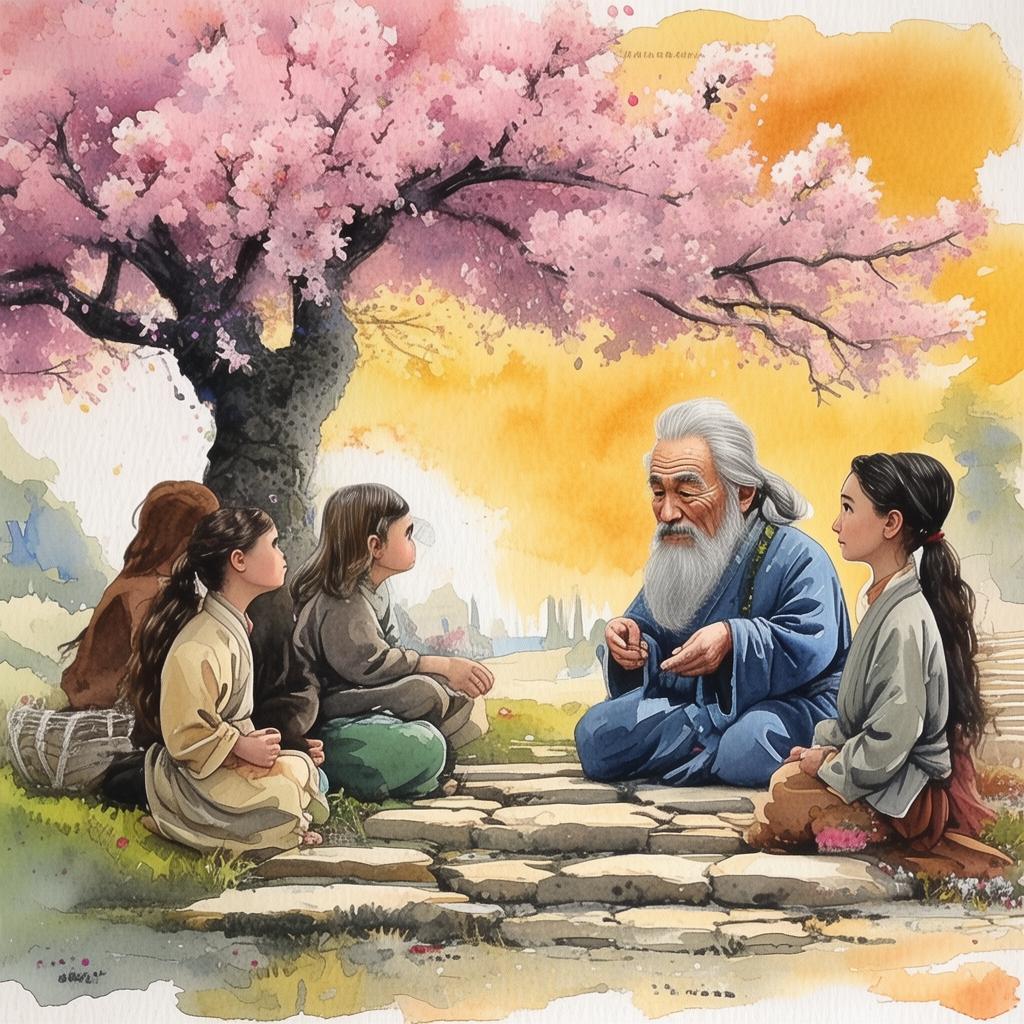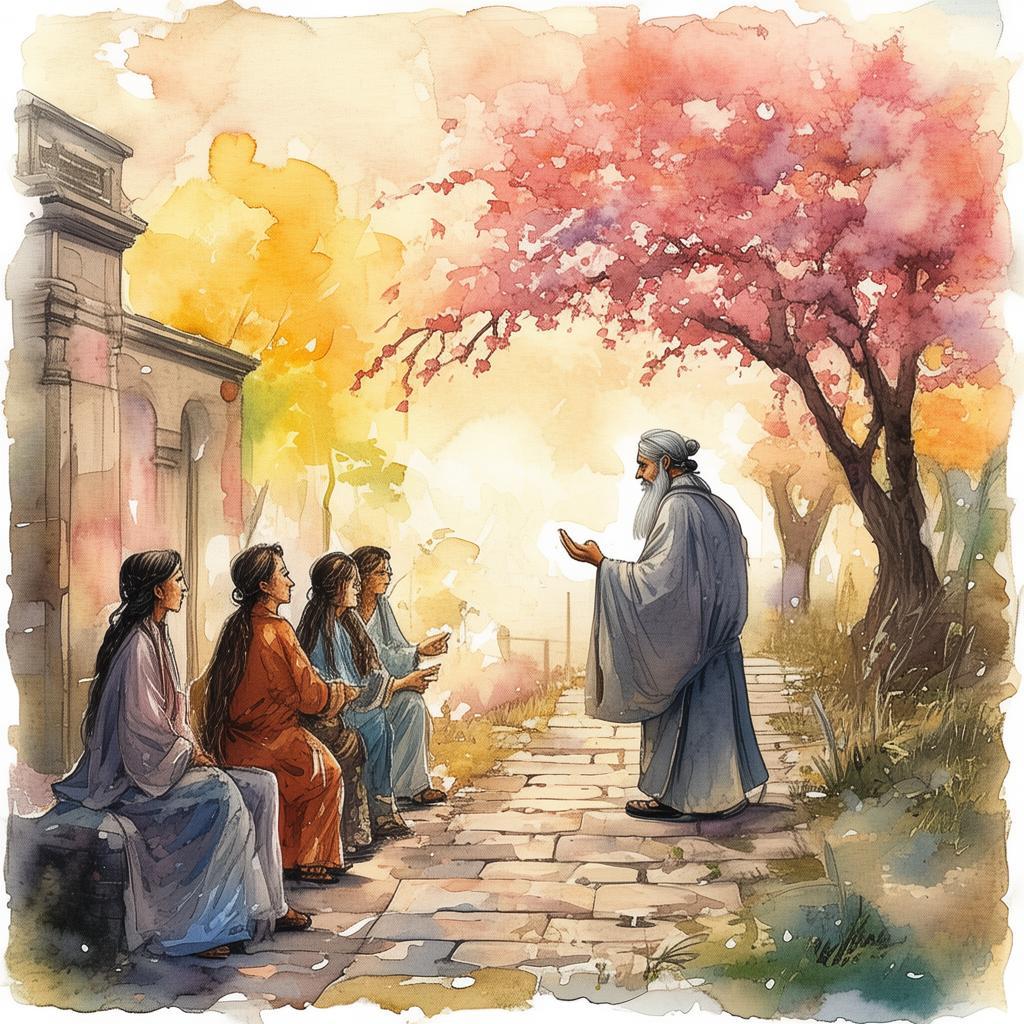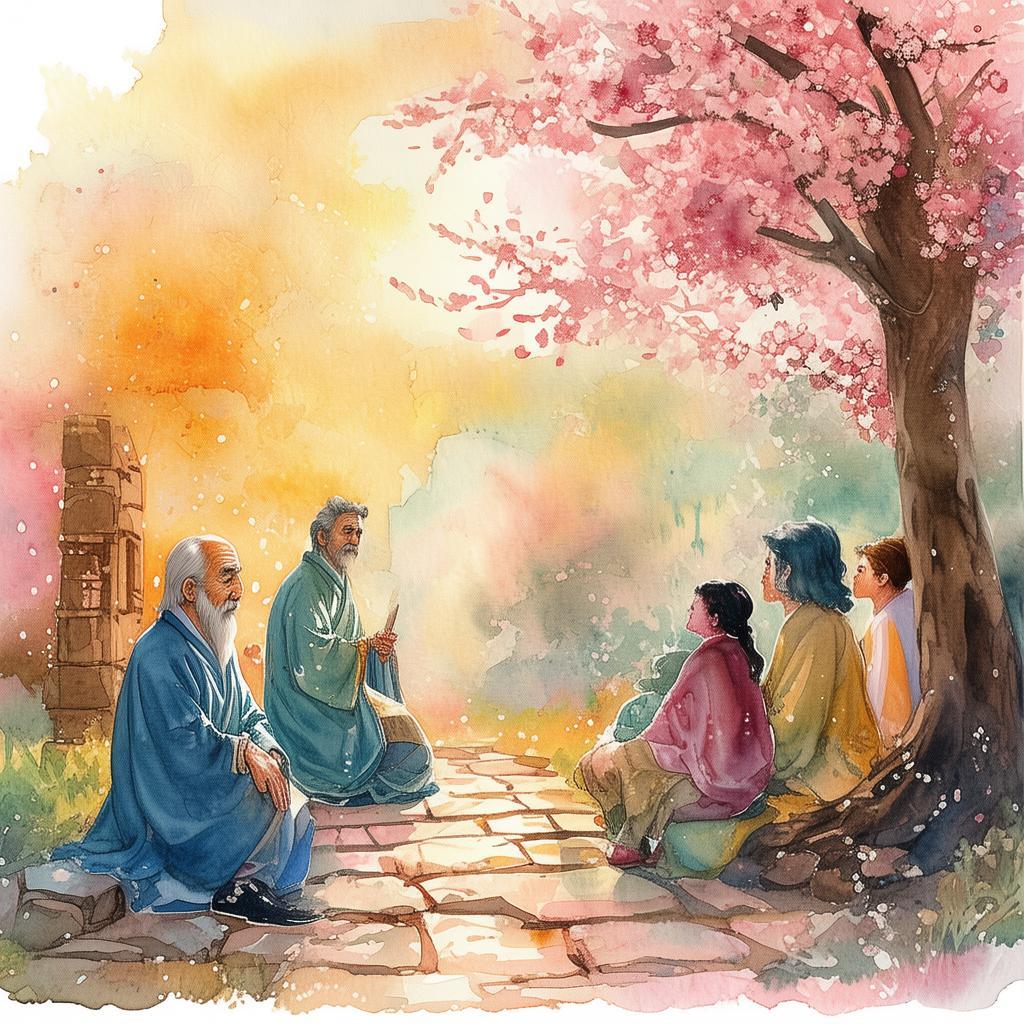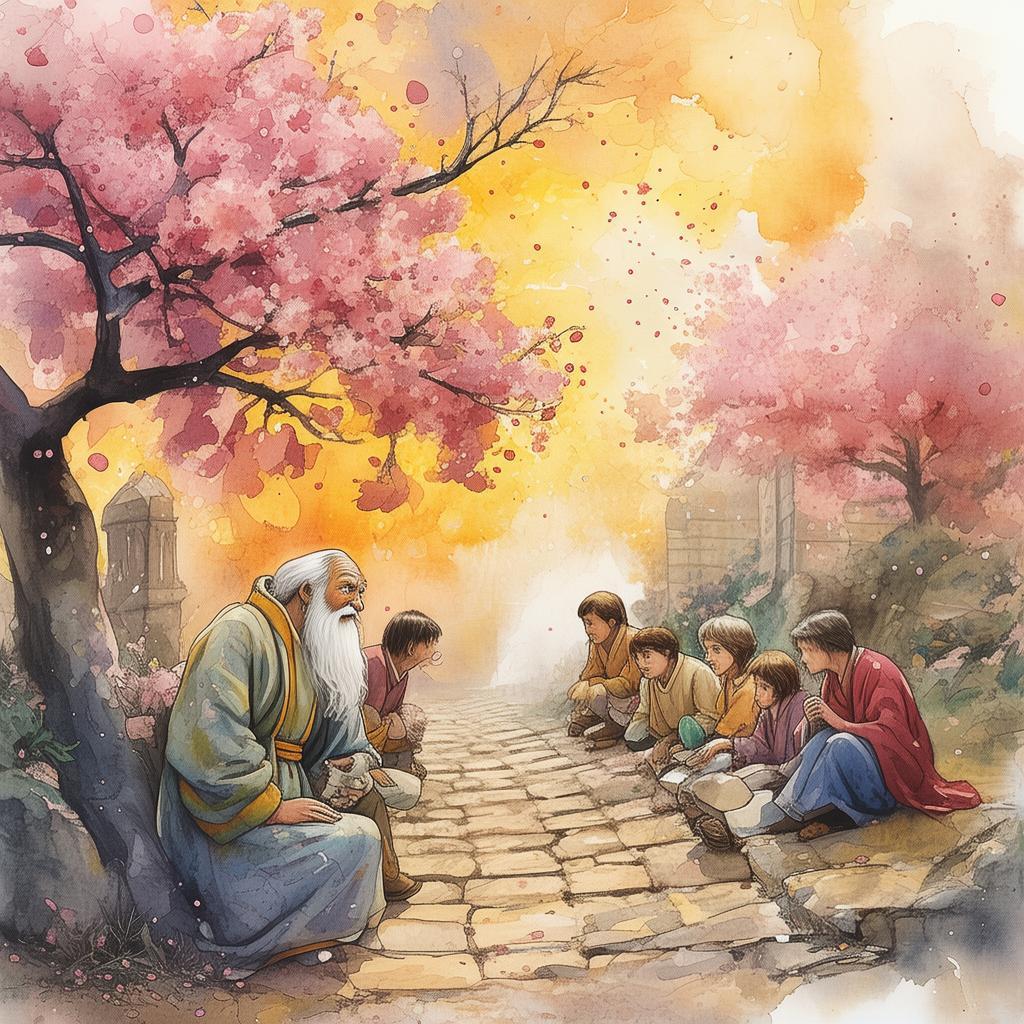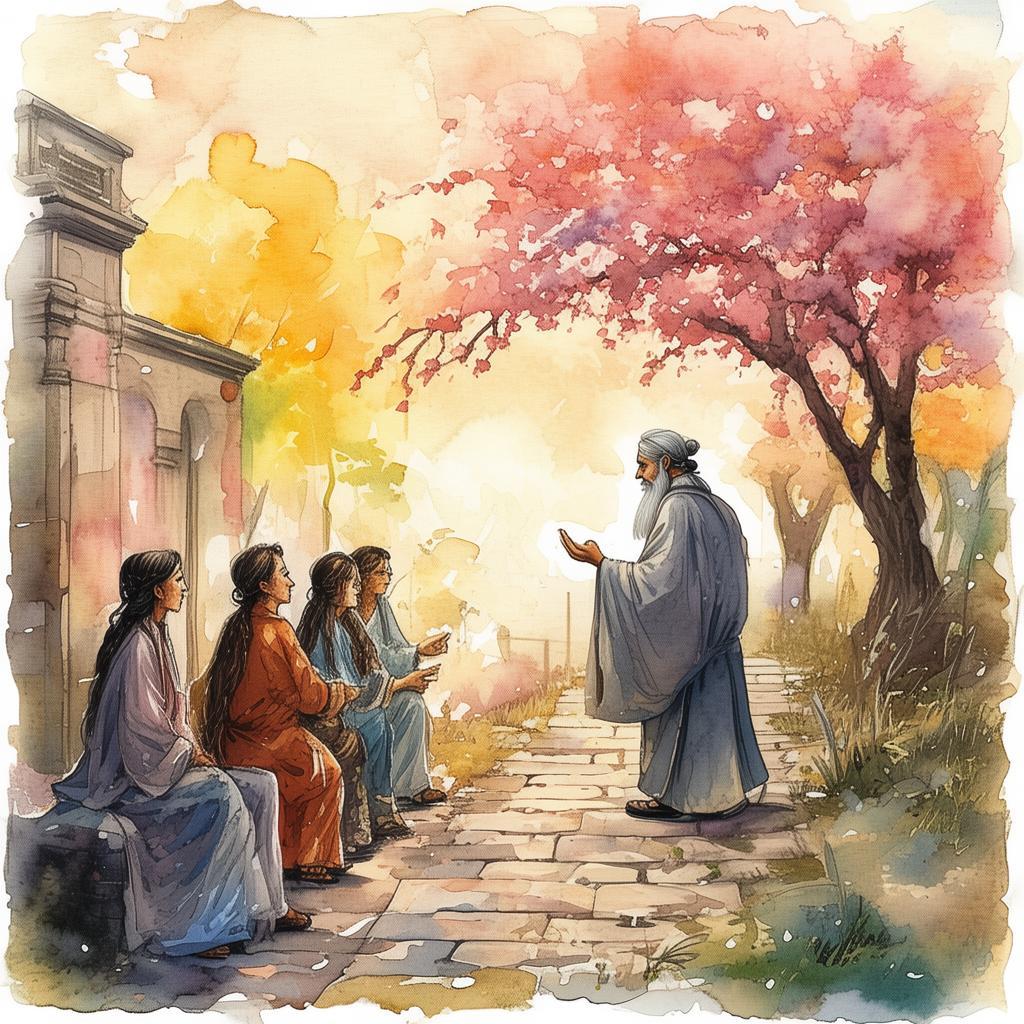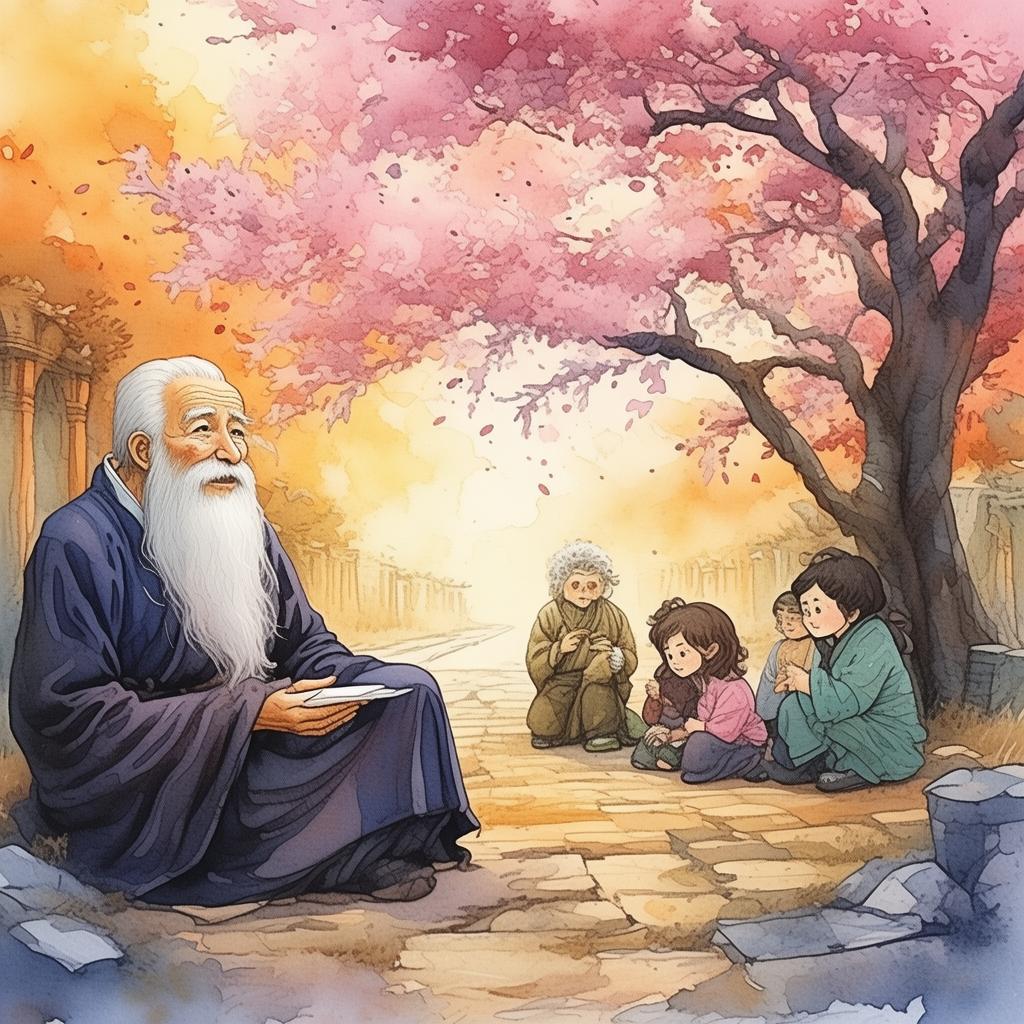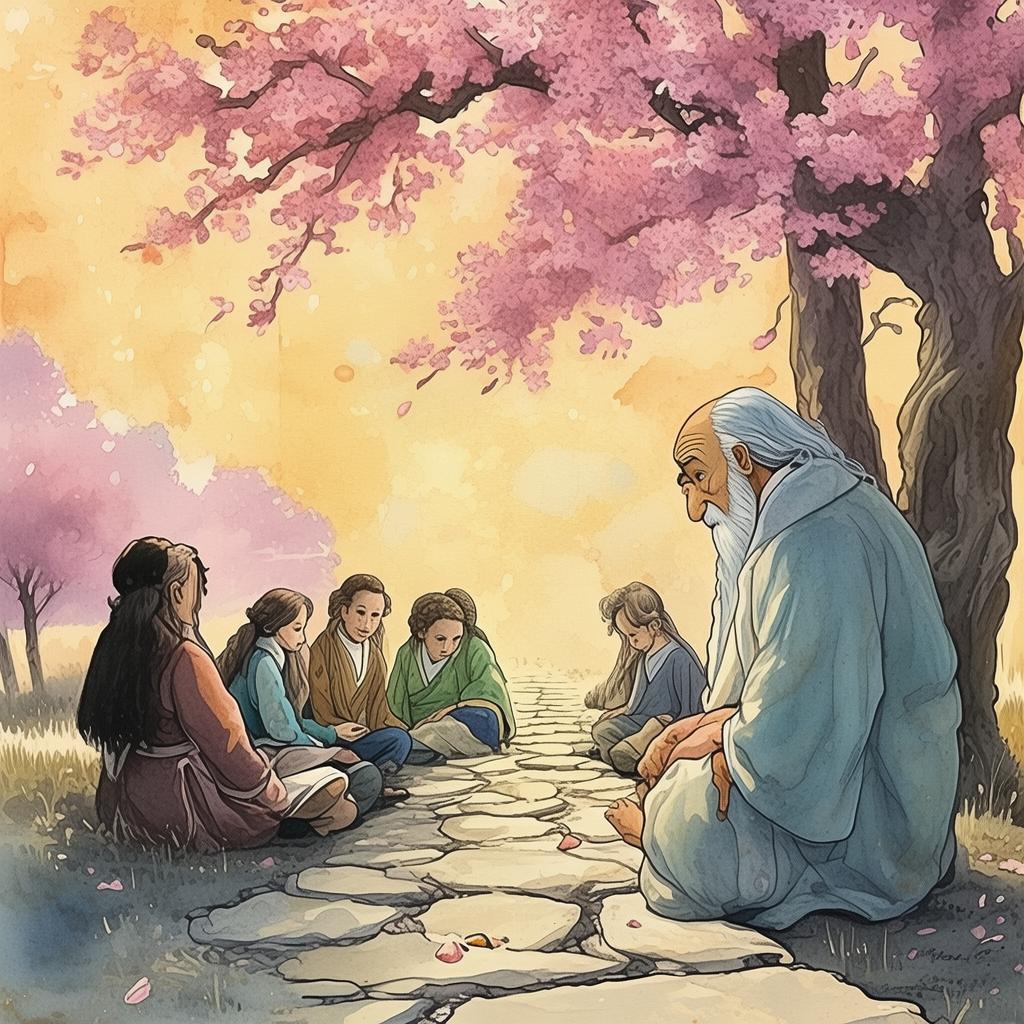The Silk Robe's Dilemma: A Tale of the Emperor's Palace
In the heart of ancient China, there stood the grand palace, where the emperor reigned with an iron fist. The walls echoed with the whispers of courtiers, and the air was thick with the scent of incense and ambition. Among the many beauties that graced the emperor's court, there was one who stood out, her name was Ying'er.
Ying'er was renowned not just for her unparalleled beauty, but for her wit and intelligence. Her elegance was unparalleled, and she was adorned in the finest silks, each weave a testament to her high status. However, her life was far from simple; she was caught in the crosshairs of political intrigue, and the silk robe she wore was more than a symbol of her royal status—it was a tool of power.
One day, the emperor summoned Ying'er to his private chamber. His eyes, sharp as a falcon's, locked onto her. "You have been favored by the court," he said, "but now, it is time for you to prove your worth."
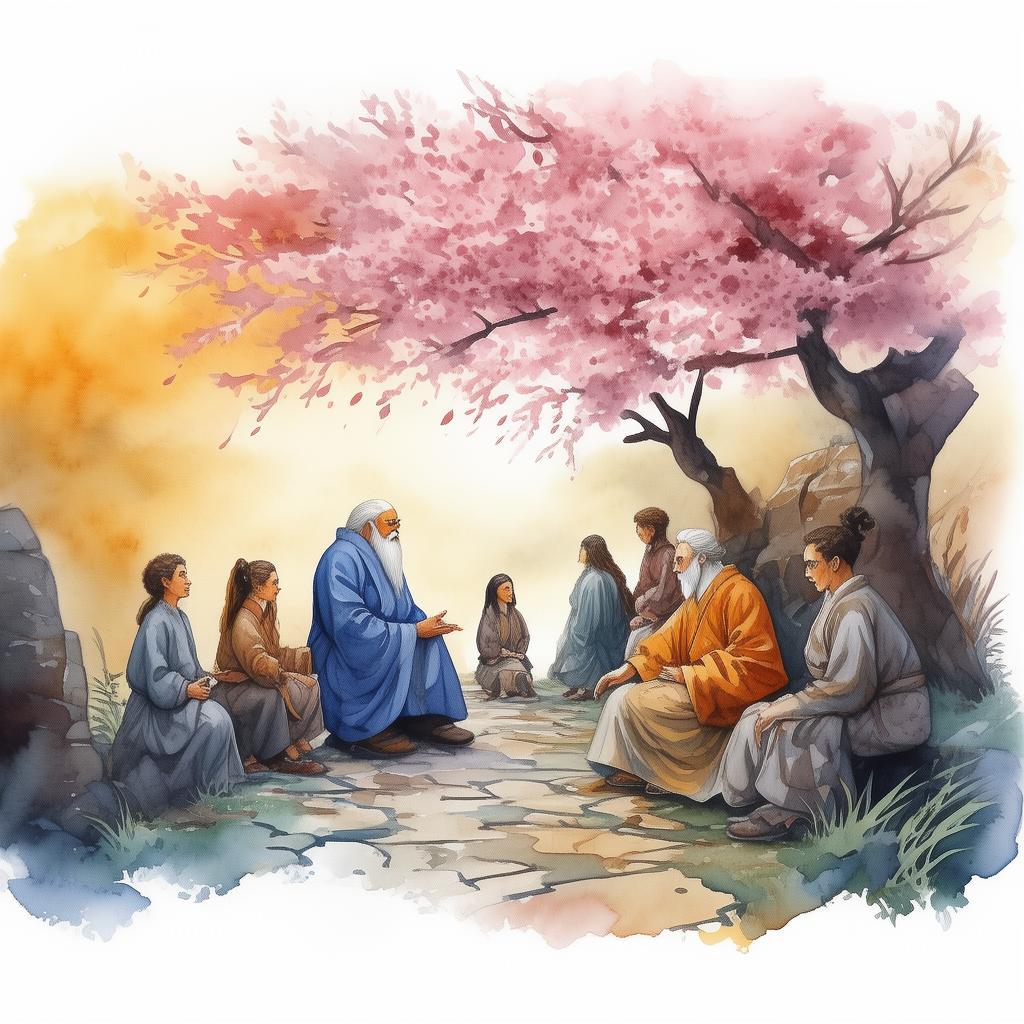
In his hand, he held a silk robe, its color a deep, ominous black. "This robe," he continued, "is said to have been woven by the hands of the empress, herself. It is imbued with her power, and those who wear it are said to be granted great favor."
The courtiers gasped, their eyes wide with envy and fear. Ying'er's heart raced as she realized the true nature of the robe. The empress was a feared and powerful figure, and to wear her robe was to invite her wrath, or perhaps her favor.
"The empress has offered it to you," the emperor said, "but there is a catch. She has challenged you to a game of wits. If you win, you may wear the robe, and your destiny will be changed forever. If you lose, you will face her wrath."
The courtiers murmured, their voices a cacophony of advice and warnings. Ying'er knew she had to play her cards carefully. She had seen too many young beauties fall to the empress's cunning. Yet, she also knew that this was her chance to rise above the ranks and gain the power she craved.
The game began with a simple riddle: "What is it that has keys but can't open locks?" The courtiers exchanged glances, unsure of the answer. Ying'er, however, smiled. "The mouth," she said confidently. The empress, who was observing from a distance, nodded in approval.
The next round was more challenging, a riddle about the nature of time. The courtiers were stumped, but Ying'er's quick mind allowed her to deduce the answer: "The hourglass."
The empress, pleased with Ying'er's intellect, allowed her to wear the robe. But as she stepped into the silk garment, she felt an overwhelming sense of responsibility. The robe, it seemed, was more than just a symbol of power—it was a reminder of the consequences that came with it.
As Ying'er moved through the palace, her presence was noticed by many. Some courtiers envied her, while others feared her newfound power. Ying'er realized that she had to tread carefully, for the empress's favor was as fleeting as the wind.
One day, as she walked through the gardens, Ying'er encountered a group of courtiers who were plotting against her. Their leader, a cunning man named Wang, was determined to take her place. "Ying'er," he sneered, "you have become too powerful for your own good."
Ying'er knew she had to act. She approached Wang and offered him a deal. "If you help me, I will ensure your rise in the court," she said, her voice steady. Wang, seeing the potential for his own advancement, agreed.
The plan was set. Ying'er would use her newfound power to elevate Wang, and in return, he would ensure her safety. As the plot unfolded, Ying'er realized that the consequences of her actions were far-reaching. She had to balance her own ambition with the welfare of those around her.
The days turned into weeks, and Ying'er's power grew. She became a figure of legend, a beauty who wielded power with grace and wisdom. Yet, she also became a target, as Wang's ambitions grew and he sought to take more control.
One evening, as the moon hung low in the sky, Wang confronted Ying'er in the gardens. "You have used me," he hissed, "but now, it is time for me to take what is mine."
Ying'er, with a calm that belied her fear, stepped forward. "Then you will have to kill me," she said, her eyes meeting his. Wang raised his hand, preparing to strike.
Suddenly, the empress appeared, her figure cloaked in mystery. "You seek power, Wang," she said, her voice cold. "But power is a heavy burden. You have forgotten the consequences of your actions."
Wang, taken aback by the empress's sudden appearance, tried to explain his motives, but she cut him off. "Ying'er," she said, turning to Ying'er, "you have shown that power is not the end goal. It is the means to an end. Use it wisely."
The empress then disappeared as quickly as she had come, leaving Ying'er and Wang in silence. Ying'er realized that her journey was far from over. She had to continue to navigate the treacherous waters of the palace, using her intellect and wisdom to ensure that she and those she loved would survive.
The silk robe, now a symbol of her journey, was draped over the arm of her chair. Ying'er knew that she had to be vigilant, for the palace was a place where the greatest dangers often came in the form of the most beautiful lies.
And so, Ying'er continued her struggle, her beauty and wit her greatest allies, as she fought to maintain her position and protect those she cared for. The silk robe, a constant reminder of the choices she had made, would forever be a part of her story, a tale of the beauty's struggle in the emperor's palace.
✨ Original Statement ✨
All articles published on this website (including but not limited to text, images, videos, and other content) are original or authorized for reposting and are protected by relevant laws. Without the explicit written permission of this website, no individual or organization may copy, modify, repost, or use the content for commercial purposes.
If you need to quote or cooperate, please contact this site for authorization. We reserve the right to pursue legal responsibility for any unauthorized use.
Hereby declared.
